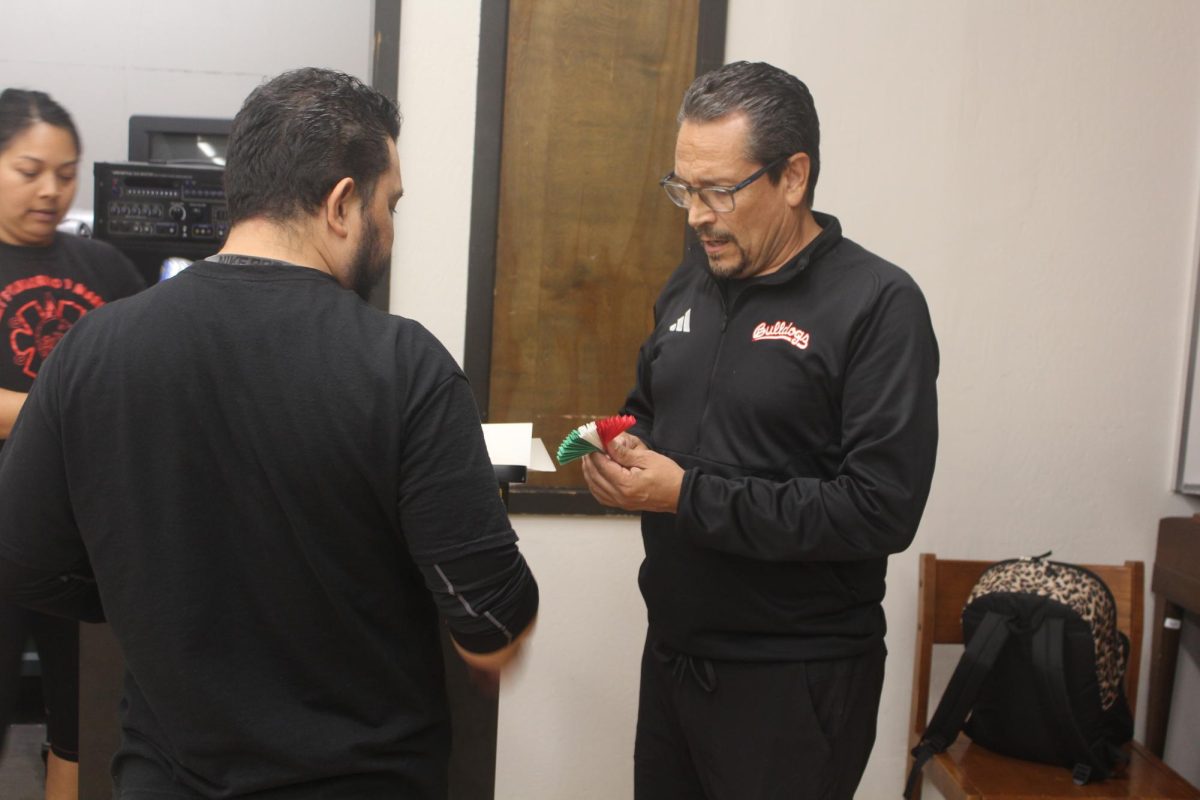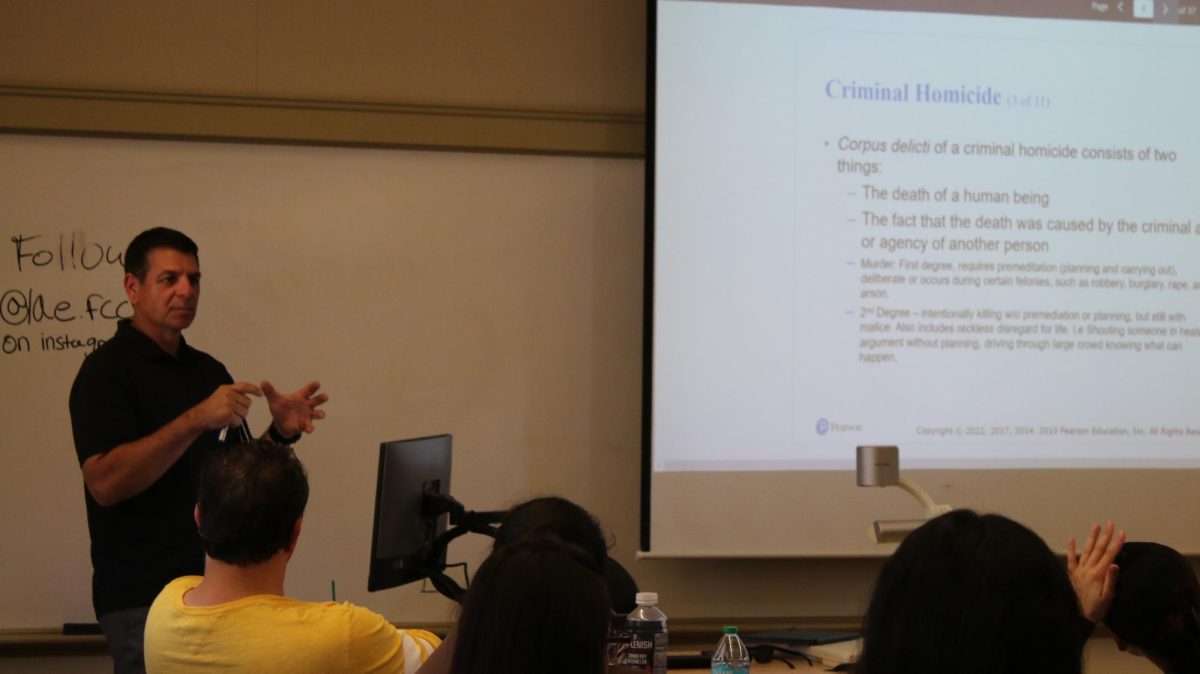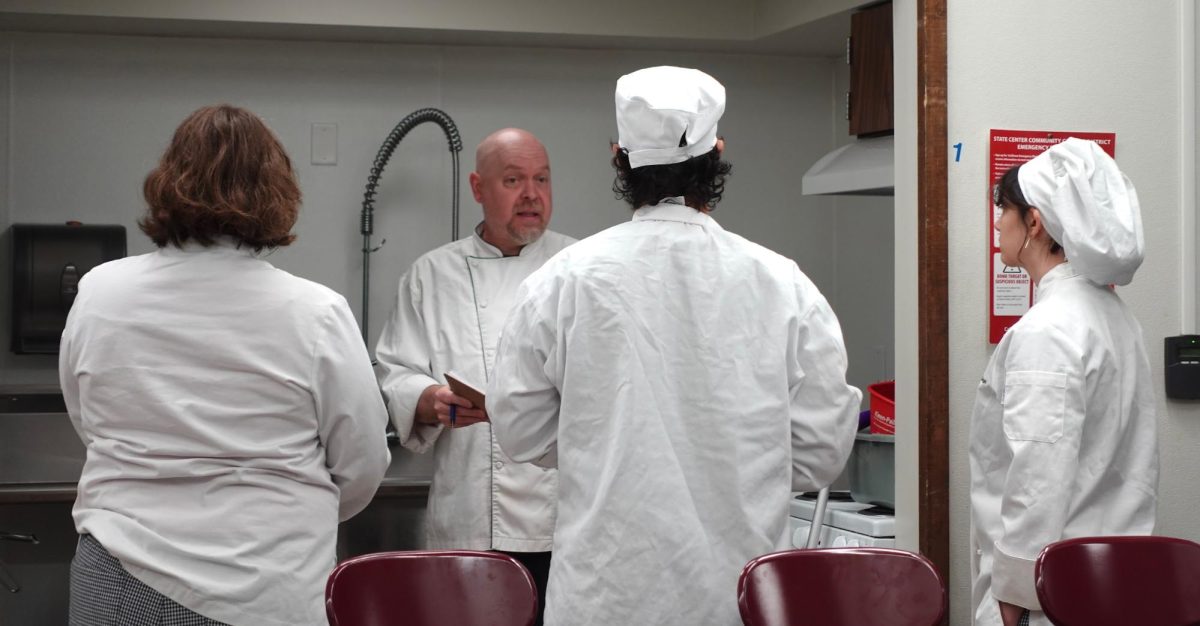“Hand To God” was presented at the Fresno City College Studio Theater on Thursday night, Nov. 21.
The show is about a soft-spoken Jason and his foul-mouthed puppet, Tyrone, as they deal with the aftermath of the death of Jason’s father. Jason’s widowed mother, Margery, is tasked with putting together a puppet show for the church, with Jason’s crush, Jessica, and town troublemaker, Timothy.
“Hand To God” deals with some dark subject matter such as death, resentment and emotional repression, but at its essence, the show is about blame. Blame and the despair that comes with blaming others for our moral failures.
The characters are dealing with grief in some way. Jason deals with the death of his father, while coming to terms with his father resenting him. Margery deals with the death of her husband and her loveless marriage. Jason and Margery blame each other for their predicament and cope in different ways. Jason becomes closer with his puppet, Tyrone, and Margery engages in an affair with Timothy.
What the show does well is confront the delicate nature of faith and morality with a sense of humor
The story’s themes of blame and despair are driven home when Tyrone, who is now literally larger than life, delivers probably my favorite line in the show: ”The thing about a savior is you never know where to look. Might just be the place where you saw the devil before.”
The performance of lead actor, Nick Sterling, who plays Jason and Tyrone, reinforces the show’s themes of blame and despair, with sweet earnestness and violent fervor.
“I’ve never worked with puppets before,” Sterling said. “The aspect of not only using a puppet, but playing two different characters at the same time was definitely something that intrigued me about the show.”
Katya Madrigal, who stars as Jessica and Jolene, a female puppet who has an intimate relationship with Tyrone. They play Jessica and Jolene with a bit of gentleness, yet is the voice of reason in a chorus of crazy.
“I’ve never done anything this mature,” Madrigal said. “It was so cool, so fun, but also so important and I wanted to be part of that.”, Madrigal said. “My character Jessica is what I’d call the voice of reason for the most part. She also has a puppet that goes through a major transformation, but also showcases Jessica’s relationship with herself”.
Another standout performance was Margery, Jason’s widowed mother, played by, Karina Balfour, with a cheerfulness that barely covers a deep, seething anger. Margery’s character plays into the blame aspect of the show – engaging in an affair with Jason’s not-really friend, Timothy, and blames the devil for her actions.
James Knudsen’s portrayal as Pastor Greg plays into the despair aspect of the show. He professes his feelings for Margery in an embarrassingly endearing way, which gets him nowhere.
Surprisingly, Pastor Greg is one of the more normal characters in the show, calling out Margery on her actions, while also willing to talk things out with Jason, who is in the midst of being possessed by Tyrone.
The show’s technical elements, especially the lighting, reinforced the themes of blame and despair. In particular, Tyrone was cast in purple and red hues, hinting at his mysterious, and possibly otherworldly nature.
For the ending, Tyrone is bathed in deep purple lighting, pretty much confirming he is the devil.
The stage set served its purpose in telling the story, serving as the basement of a church. I personally thought it was cool, how set pieces were hidden and quickly put to place, like Jason’s bed. For me, the stand out for me was the giant Tyrone puppet that overtakes the stage at the very end.
The show utilized well known music throughout the story. My favorite use of music is its use of “Sympathy For The Devil” by The Rolling Stones to close the show.
The song, just like the show, is about the devil questioning humanity on why they use the devil as a scapegoat for the atrocities we put each other through. The characters do the exact thing in this show. They blame themselves and each other for the sticky situations they put themselves through.
In “Hand To God” and “Sympathy For The Devil“, the devil puts a mirror to our faces and tells us, rather frankly: “This is on you. Blame yourselves for once!”.
Crude talking puppets serve as only one part in a show that delves into blame and taking accountability for our own actions presented in a dark, yet hilarious way.








